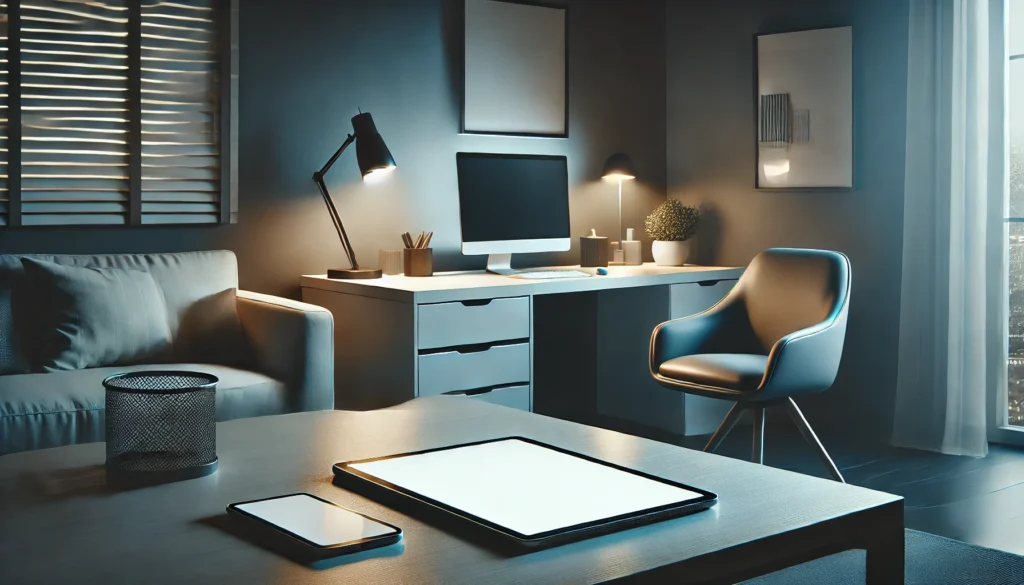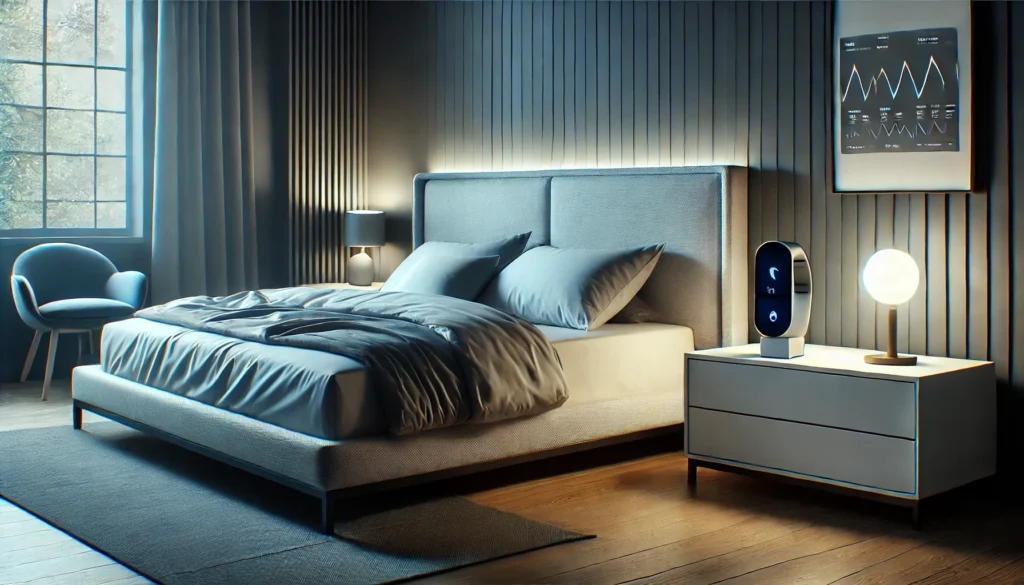Before diving into the effective use of snoring apps, it’s important to understand why snoring occurs and its potential health implications. Snoring is caused by the vibration of soft tissues in the throat during sleep. While it is often considered a mere annoyance, snoring can sometimes indicate underlying health issues such as sleep apnea, which can lead to more severe health problems if left untreated.
You May Also Like: Ultimate Guide to Sleep Tracker Apps
Causes of Snoring
Several factors contribute to snoring, including the anatomy of your mouth and sinuses, alcohol consumption, allergies, and even your weight. When you fall asleep and progress from a light sleep to a deep sleep, the muscles in the roof of your mouth, tongue, and throat relax. Sometimes, these tissues relax enough that they partially block your airway and vibrate. The more narrowed your airway, the more forceful the airflow becomes. This increases tissue vibration, causing your snoring to grow louder.
Health Risks Associated with Snoring
While occasional snoring is usually not a serious problem, chronic snoring can be a sign of sleep apnea, a disorder characterized by frequent pauses in breathing. Sleep apnea can increase the risk of developing high blood pressure, heart problems, type 2 diabetes, and liver issues. Additionally, sleep apnea can cause daytime fatigue, making it difficult to concentrate and increasing the risk of accidents.
Social and Emotional Impact
Snoring can have a significant social and emotional impact, affecting relationships and self-esteem. It can disrupt the sleep of partners, leading to separate sleeping arrangements and strained relationships. Individuals who snore might also experience embarrassment and anxiety, especially when sleeping in new environments or with new partners. Addressing snoring can thus improve both sleep quality and personal relationships.
Historical Context of Snoring
Historically, snoring has been documented in medical texts for centuries. Ancient Greek physicians, such as Hippocrates, recognized snoring as a symptom of potential health issues. Fast forward to the present day, technological advancements have made it possible to monitor and analyze snoring in ways that were unimaginable in the past.
Ancient Medical Texts
Ancient civilizations, including the Greeks and Egyptians, documented snoring in their medical texts, often associating it with health and wellness. It was not merely seen as a nuisance but as a symptom that required attention. These early observations laid the groundwork for understanding snoring as a potential health issue.
Development of Sleep Medicine
The field of sleep medicine has evolved significantly over the centuries. In the 19th and 20th centuries, with advances in medical technology, researchers began to explore the physiological causes of snoring and its implications for health more deeply. This led to the development of treatments for sleep apnea and related conditions.
Technological Breakthroughs
In recent decades, technology has transformed our approach to snoring, from simple observational studies to sophisticated snoring apps that can analyze sleep patterns with precision. Innovations in sound recording and data analysis have made it possible to monitor snoring with unprecedented accuracy, leading to more effective interventions.

The Role of Snoring Apps in Sleep Health
Snoring apps serve as a bridge between traditional sleep studies and everyday health monitoring. They offer the convenience of tracking snoring patterns from the comfort of your home. These apps utilize the microphone on your smartphone to detect and record snoring sounds throughout the night.
Key Features of Snoring Apps
- Snore Recording: Apps like SnoreLab and Sleep Cycle provide an app to record snoring by capturing audio data. This feature allows users to listen to their snoring sounds and identify patterns. Recording snoring sounds allows for a more objective assessment of snoring intensity and frequency, which can be shared with healthcare providers for further analysis.
- Snore Tracking: A snore tracking app can analyze the frequency, duration, and intensity of snoring episodes. This data is crucial for understanding the severity of the snoring problem. Tracking snoring over time can help identify triggers and patterns that exacerbate snoring, enabling targeted interventions.
- Sleep Analysis: Beyond snoring, some apps offer comprehensive sleep analysis, including sleep duration, sleep stages, and overall sleep quality. This holistic view of sleep health can help users understand the interplay between snoring and other aspects of sleep, such as insomnia or restless leg syndrome.
- Alerts and Recommendations: Many snoring apps provide personalized recommendations and tips to reduce snoring, such as adjusting sleeping positions or avoiding alcohol before bed. These alerts can help users implement lifestyle changes that may mitigate snoring and improve overall sleep quality.
Current Trends in Snoring App Technology
The development of snoring apps has been influenced by current trends in health technology, including the rise of wearable devices and AI-driven analytics. Modern snore tracker apps are increasingly integrating with wearable tech, offering a more holistic view of sleep health by combining data from multiple sources.
Integration with Wearable Devices
Many snoring apps now integrate seamlessly with wearable devices like smartwatches and fitness trackers. These devices can provide additional data on heart rate, oxygen saturation, and movement, complementing the audio data captured by the app. This integration allows for a more comprehensive analysis of sleep health.
AI and Machine Learning
Artificial intelligence and machine learning are revolutionizing the capabilities of snoring apps. These technologies enable apps to detect subtle patterns in snoring sounds and predict potential health issues. AI-driven insights can lead to more personalized recommendations and early detection of sleep disorders.
Data Privacy and Security
As snoring apps collect sensitive health data, developers are prioritizing data privacy and security. Many apps now offer encrypted data storage and strict privacy policies to protect users’ information. Understanding these security measures is crucial for users concerned about the privacy of their health data.

How to Effectively Use Snoring Apps
To maximize the benefits of snoring apps, users should follow a systematic approach. Here’s a step-by-step guide on how to use these apps effectively:
1. Choose the Right App
Start by selecting an app that suits your specific needs. Consider features like snore recording, tracking, and additional sleep analysis. Read user reviews and check app ratings to ensure reliability. Consider consulting with a healthcare professional for recommendations on the best app for your situation.
2. Set Up Properly
Ensure your smartphone is positioned correctly to capture clear audio. Place it near your bed, preferably on a nightstand, with the microphone unobstructed. It might be helpful to test different placements to find the most effective position for capturing accurate snoring data.
3. Consistent Usage
Use the app consistently over a period of time to gather comprehensive data. This will help identify patterns and assess the effectiveness of any interventions you may try to reduce snoring. Consistent usage also allows for the monitoring of changes over time, which can be crucial for assessing the impact of lifestyle changes or treatments.
4. Analyze the Data
Regularly review the data collected by the app. Look for trends in snoring frequency and intensity. Apps often provide visual representations of the data, making it easier to interpret. Share this data with healthcare providers if necessary, to gain professional insights into your snoring patterns.
5. Implement Recommendations
Follow the personalized recommendations provided by the app. This might include lifestyle changes, such as improving sleep hygiene, using nasal strips, or adjusting sleeping positions. Implementing these changes consistently can lead to significant improvements in both snoring and overall sleep quality.
6. Seek Professional Guidance
If your snoring does not improve despite following app recommendations, consider seeking professional guidance. A sleep specialist can conduct a more thorough evaluation and suggest advanced treatments, such as Continuous Positive Airway Pressure (CPAP) therapy or surgery.
Future Implications of Snoring Apps
The future of snoring apps looks promising, with potential advancements in AI and machine learning that could offer even more accurate analysis and personalized solutions. The integration of snoring apps with broader health monitoring systems could provide a comprehensive view of an individual’s health, leading to more effective interventions.
The Role of AI in Snoring Detection
AI technology is expected to enhance the capabilities of snoring apps by providing real-time analysis and identifying patterns that may not be immediately obvious to the human eye. This could lead to earlier detection of sleep-related disorders and more targeted treatment approaches. AI could also facilitate the development of predictive models that anticipate snoring episodes and recommend proactive measures.
Broader Health Monitoring
As technology evolves, snoring apps may become part of a larger ecosystem of health monitoring tools, offering insights into not just sleep health but also overall wellbeing. This holistic approach could revolutionize how we understand and manage our health. Integration with health platforms could enable users to track a wide range of health metrics, from heart rate variability to stress levels.
Personalized Health Solutions
The future of snoring apps lies in their ability to provide personalized health solutions. By leveraging user data and AI, these apps could offer tailored recommendations that align with individual health goals and preferences. This personalization could extend beyond snoring to encompass broader aspects of health and wellness, such as nutrition, exercise, and mental health.
Implications for Healthcare
The widespread adoption of snoring apps could have significant implications for healthcare systems. By empowering individuals to monitor and manage their sleep health, these apps could reduce the burden on healthcare providers and improve patient outcomes. They could also facilitate remote monitoring and telemedicine, providing healthcare professionals with valuable data for informed decision-making.

Conclusion
Snoring apps are an invaluable tool for individuals looking to improve their sleep health. By understanding how to use these apps effectively, users can gain insights into their snoring patterns and take steps towards better sleep quality. As technology continues to advance, the potential for snoring apps to contribute to overall health and wellness is immense.
Whether you are a health and wellness coach, a science journalist, or a biohacker, understanding and utilizing snoring apps can provide a wealth of information and support in achieving optimal health and wellbeing. By staying informed about current trends and future implications, you can make the most of these innovative tools.
Incorporating snoring apps into your health routine could be the key to unlocking a better night’s sleep and, ultimately, a healthier life. With continued advancements in technology, the future of snoring apps promises even greater insights and solutions, paving the way for improved sleep health and overall wellbeing.
Further Reading:
Do Sleep Apps Really Work, and Can They Treat Sleep Apnea?
Snoring Apps for iPhone: A Modern Solution To Record Your Snoring
Accuracy of a Smartphone Application Measuring Snoring in Adults—How Smart Is It Actually?
Important Note: The information contained in this article is for general informational purposes only, and should not be construed as health or medical advice, nor is it intended to diagnose, prevent, treat, or cure any disease or health condition. Before embarking on any diet, fitness regimen, or program of nutritional supplementation, it is advisable to consult your healthcare professional in order to determine its safety and probable efficacy in terms of your individual state of health.
Regarding Nutritional Supplements Or Other Non-Prescription Health Products: If any nutritional supplements or other non-prescription health products are mentioned in the foregoing article, any claims or statements made about them have not been evaluated by the U.S. Food and Drug Administration, and such nutritional supplements or other health products are not intended to diagnose, treat, cure, or prevent any disease.


